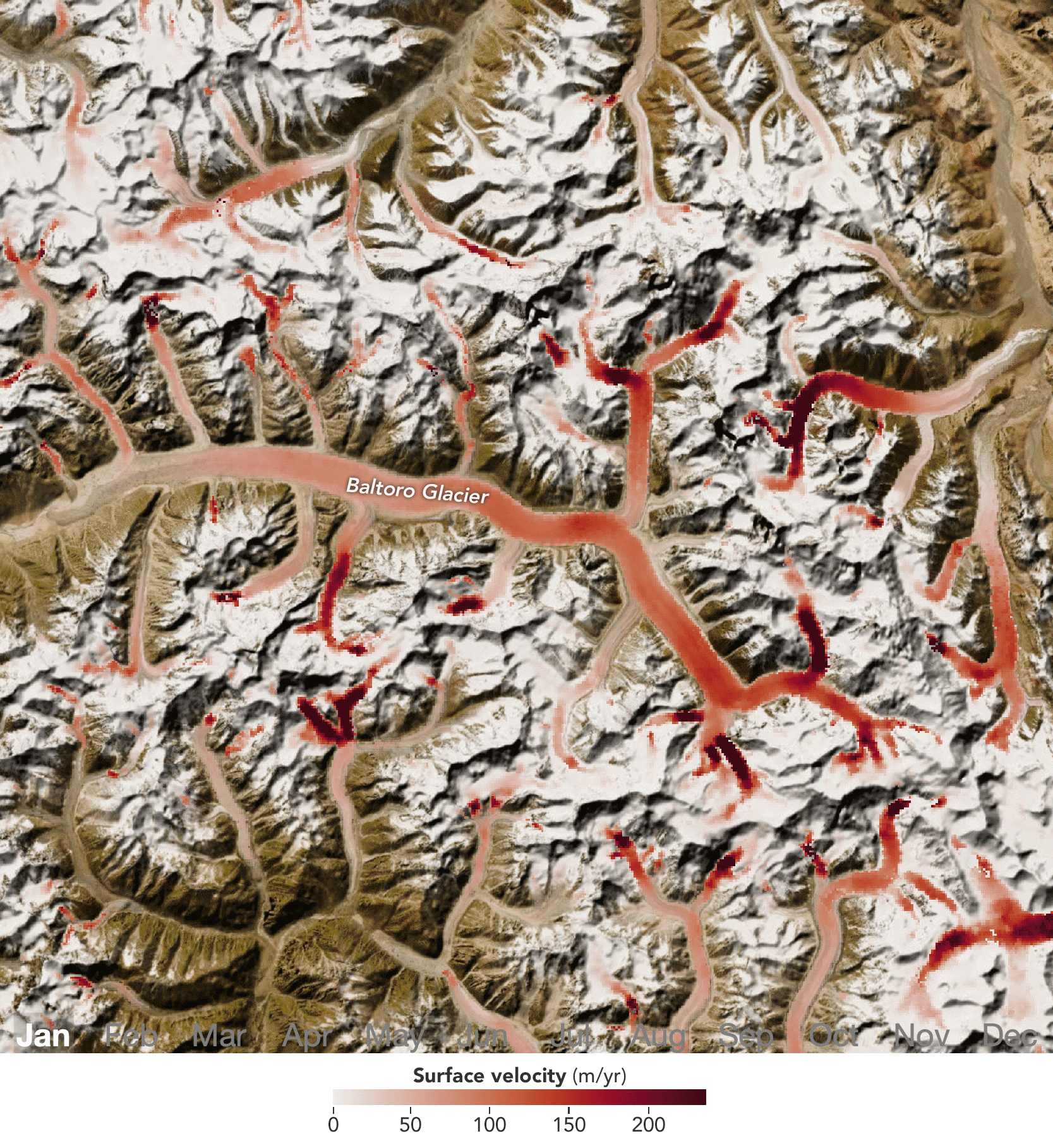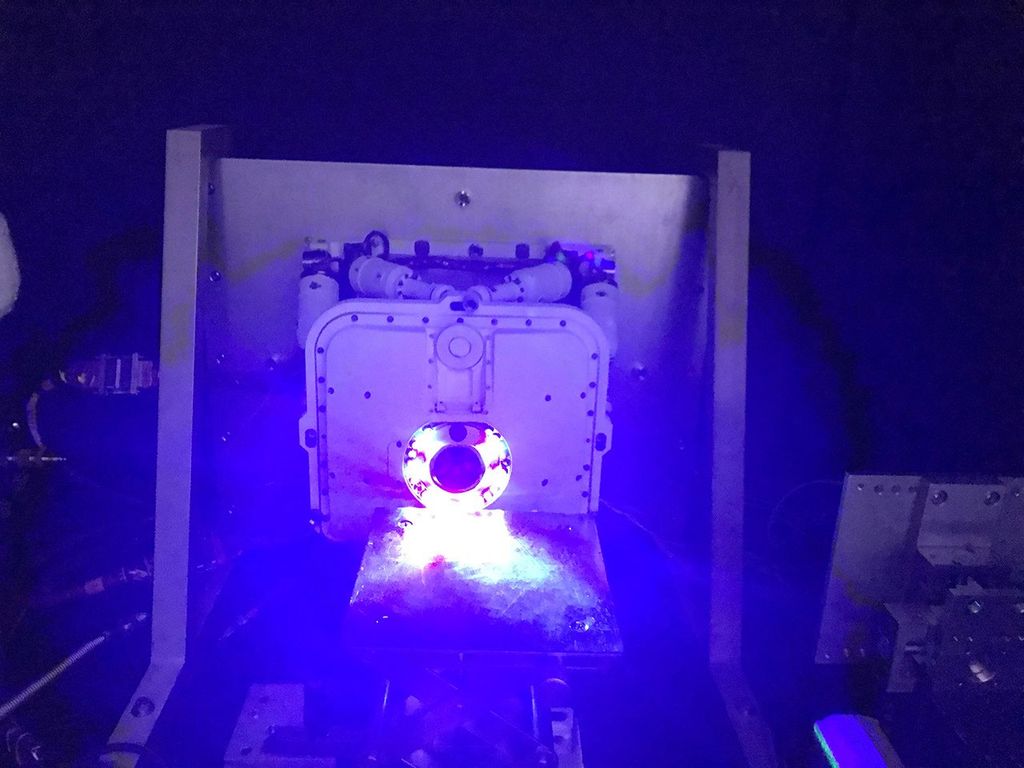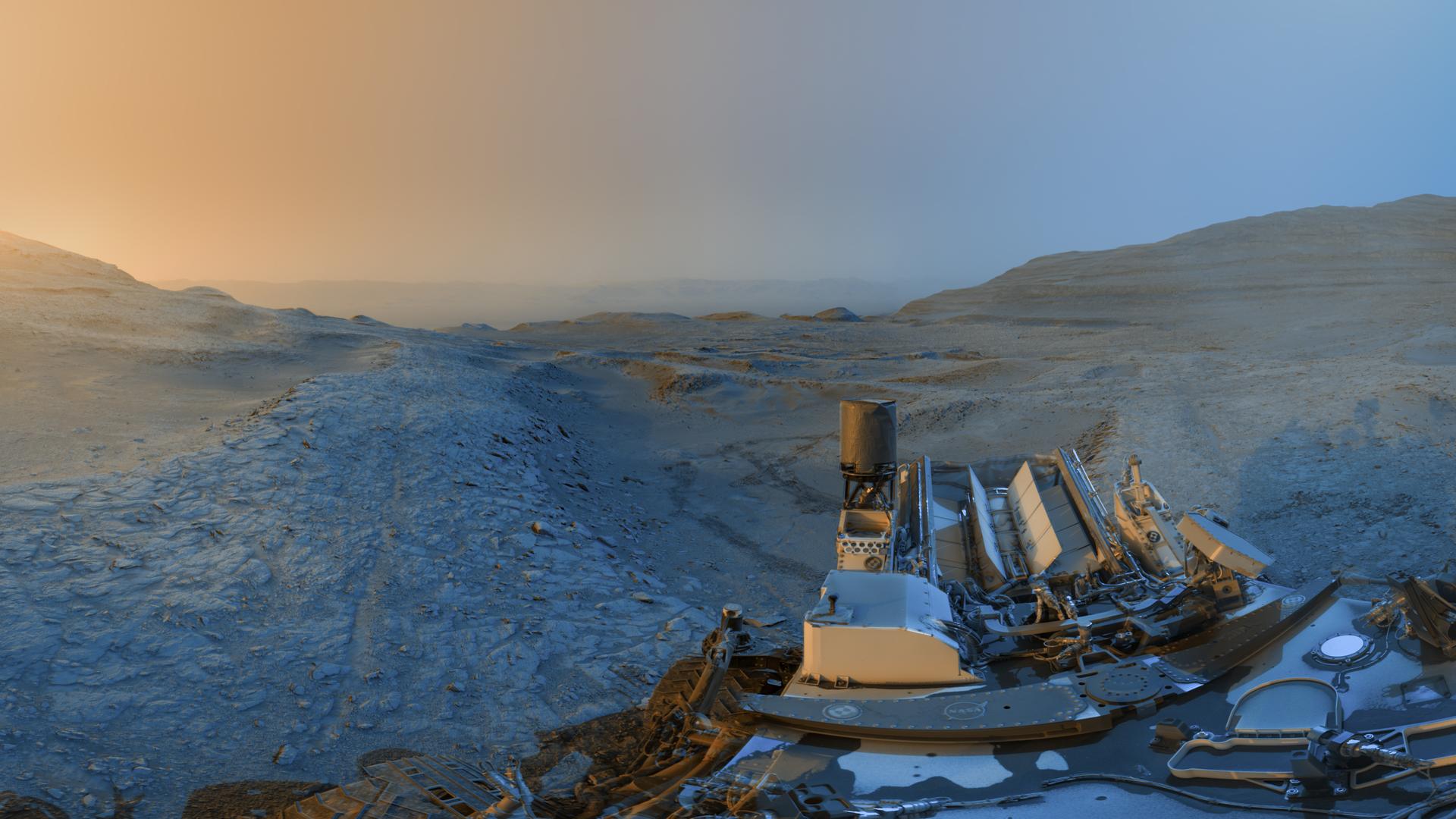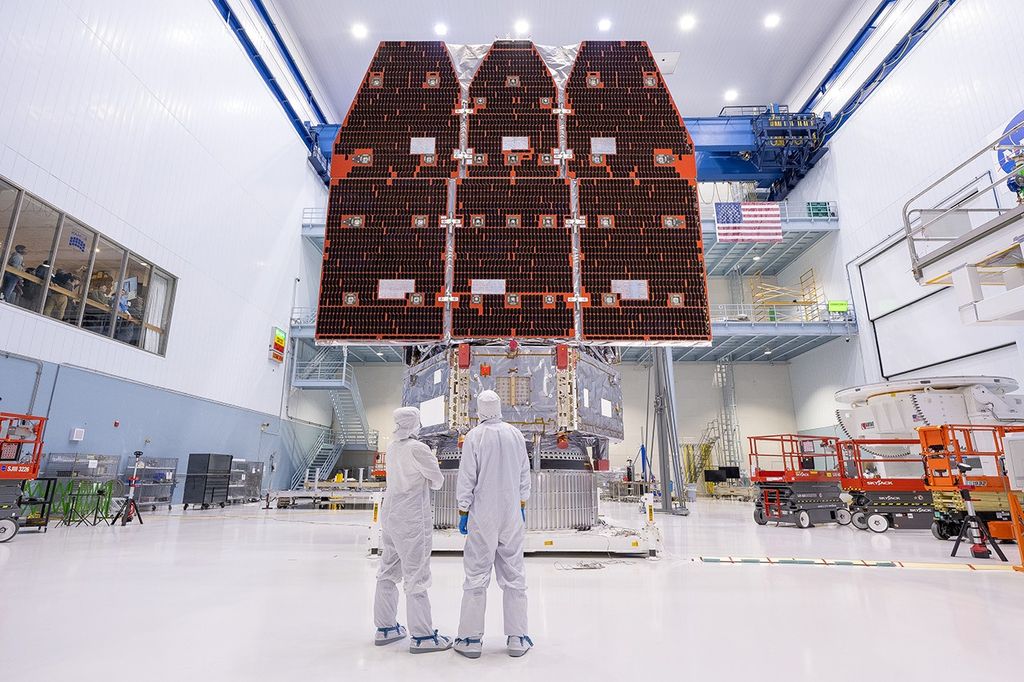Science Mission Directorate PI Launchpad Workshop
Notice of Intent (NOI): NNH23ZDA008L
Released: February 09, 2023
Applications Due: April 14, 2023 11:59 Eastern Time
Short URL: https://go.nasa.gov/ApplyPILP23
Are you thinking about developing your first flight mission proposal in the next few years but have no idea where to start? If you are a researcher in any NASA Science Mission Directorate (SMD) discipline who wants to take your career to the next level but have not yet held a leadership position on mission proposals or large science teams, this is the workshop for you. To determine if your discipline is supported by SMD, check out:
- https://science.nasa.gov/astrophysics
- https://science.nasa.gov/solar-system
- https://science.nasa.gov/heliophysics
- https://science.nasa.gov/earth-science
- https://science.nasa.gov/biological-physical
- https://science.nasa.gov/lunar-discovery
Would you like to apply to join us July 24-27, 2023, for the third Principal Investigator (PI) Launchpad: a workshop that will teach you the skills to get your mission idea off the ground? This workshop will be held at the University of Michigan, Ann Arbor, over 4 days, with additional pre-recorded content. Applications are due as a NASA Solicitation and Proposal Integrated Review and Evaluation System (NSPIRES) NOI by April 14, 2023. A pre-application information session will be held on Friday February 24th, 2023. Targeted notification date for applicants on the status of their application is Tuesday, May 30, 2023.
Table of Contents for this document
- Workshop Overview
- Application Prerequisites
- Application Instructions
- Application Questions
- Additional Details
- Application Submission Information
- Pre-application Information Session
- Criteria for Evaluation & Review Process
- Point(s) of Contact (POC)
Important Dates
- Pre-application Information Session: February 24, 2023
- Applications due on NSPIRES: April 14, 2023
- Applicants notified of status: May 30, 2023 (target)
- Workshop dates: July 24-27, 2023
Workshop Overview
The University of Michigan, in collaboration with the University of Arizona, Ames Research Center, Goddard Space Flight Center, NASA’s Jet Propulsion Laboratory, the Science Mission Directorate (SMD)at NASA Headquarters, Washington, DC and the Heising-Simons Foundation, will host the PI Launchpad to guide participants through ways to turn their science question into a mission concept. Participants will go step-by-step through the process of developing a science case, defining requirements, building a team, securing partnerships, and obtaining support from the home institution. Participants also will have time for networking and personal reflection as they mature their mission concepts.
We strive to make the workshop as inclusive and accessible as possible from the beginning of the planning process. The workshop will be hosted by the University of Michigan. The University of Michigan provides an overview of their accessibility resources. The workshop will provide ground transportation and additional resources as needed to ensure all participants have equal access to the workshop. Any questions about accessibility may be directed to Dr. Michael Liemohn.
In addition, applicants are encouraged to submit accessibility requests anytime until the April 14 application deadline by emailing our Accessibility POCs, Dr. Michael Liemohn and Marti Moon, with a description of any accommodations needed to fully participate in the workshop. Early submission of your accommodation needs will allow us to incorporate any additional accommodations early in our planning stages. Once selections are made, we will make a formal request for any additional accommodations from all accepted/confirmed participants to ensure that their needs are fully met.
Application Prerequisites
- Applicants must have previously submitted a research, technology, or observing time proposal to any municipal, state, or federal research agency or private foundation.
- Applicants should not have served in a significant capacity on the science team of a proposed or selected NASA spaceflight investigation solicited by an AO such that they already know the proposal process. Significant capacity means PI, Deputy PI, Project Scientist, Deputy Project Scientist, Instrument Scientist, Deputy Instrument Scientist, or similar roles. Proposals submitted to a ROSES call do not fall under this restriction.
- Applicants must have an account with NASA’s Solicitation and Proposal Integrated Review and Evaluation System (NSPIRES) to submit an application. Potential applicants are urged to access NSPIRES well in advance of the application due date to familiarize themselves with its structure and enter the requested identifier information.
Application Instructions
For your application to be considered, please answer ALL five questions listed below. Submissions which do not address the five questions below will be rejected without review. Do not submit additional documents in place of or in addition to your answers to the questions as they will not be reviewed. Applicants may only submit one application reflecting the science investigation they intend to work on during the workshop.
Answer lengths: Each answer can be up to 500 words. Shorter answers are welcome as long as all aspects of the question are answered, but submissions with answers that exceed 500 words for any question may be rejected. Shorter answers for one question do not allow for a longer answer for another question.
All science investigations proposed MUST demonstrate direct relevance to NASA Science Mission Directorate’s (SMD) science objectives (more information on these objectives). All proposals must be for a full science investigation. Submissions that address other aspects of NASA’s mission (e.g., the human health effects of the space environment) will not be considered. Technology development or demonstration concepts are not solicited for this workshop.
If you have additional questions about the application or the workshop, please consult or contact: hq-smd-piworkshop@mail.nasa.gov. The Questions and Answers document available under the ‘Other Documents’ heading on the NSPIRES page for this opportunity may also be helpful.
Application Questions:
Please provide responses, in PDF form via an NSPIRES NOI to the following five questions:
- What is your science question that you would like to develop into a mission concept? As a prerequisite for participation, we want you to have a relevant science question that can be addressed via a mission concept that you will formulate throughout the workshop. Please address the following questions in your answer in up to 500 words.
- Why does answering your question require a spaceflight investigation?
- Why is now the appropriate time to develop your science question into a mission concept?
- How is your science question relevant to NASA’s Science Mission Directorate science goals as laid out by decadal surveys and roadmaps (see below)?
- How would a mission derived from your science question be innovative or transformative?
Additional Notes
- Science Investigations MUST be directly relevant to at least one of the five science divisions of NASA’s Science Mission Directorate: Heliophysics, Earth Science, Planetary Science, Biological and Physical Sciences, or Astrophysics. NASA’s most recent science plan.
- The science investigation must demonstrate that a full mission concept is necessary (including small complete missions like SmallSats or CubeSats but not an instrument contribution, technology development, or research experiment).
- Investigations focused on other objectives or objectives from non-SMD parts of NASA will be rejected without review.
- Applicants should provide at least one example of how their science directly addresses a science goal described in either the most recent decadal or roadmap for their division of SMD. Neither the quality of the science case nor the maturity of the concept will be evaluated but the science question will be assessed for its novelty, relevance, and requirement of a space mission. The most recent decadal surveys which describe strategic goals for each SMD Division can be found here:
- Planetary Science
- Earth Science
- Astrophysics
- Heliophysics
- Biological and Physical Sciences
- See the National Academies Website for other documents
- Additional NASA Science Strategy documents
- Describe your views on leadership and the obligations of leaders, using specific examples from your lived experience and how you may embody them. We are not going to teach leadership skills in the workshop and thus a prerequisite for attendance is demonstrating previous thought and awareness of leadership skills. Please address the following questions in your answer in up to 500 words.
- Do you have a personal leadership style? If so, what is it?
- How do you motivate and support team members in their tasks?
- How do you ensure junior team members are prepared for future leadership roles?
- What process would you use to communicate critical decisions to members of your team?
Additional Notes
- Views on leadership can come from both your own experiences as a leader or participant on a team.
- Applicants should provide at least one specific example of a time when they motivated and supported team members, provided mentorship, and developed an intentional process to make critical decisions.
- A critical decision is one in which multiple important objectives are balanced against each other in a project.
- Applicants should describe the thought behind each of these examples.
- A recent report on the committee for Increasing Diversity and Inclusion in the Leadership of Competed Space Missions from the National Academies of Science, Engineering, and Medicine might be useful to applicants
- Please address the following questions in your answer in up to 500 words.
- How does your lived experience inform your capabilities as the leader of a team?How have you supported and involved the people you hope to reach with your work?You may also include examples of work you have been involved in or initiated - including but not limited to in-person and virtual programs, focused interactions, and/or broad-reaching digital activities.
Additional Notes
- Applicants should provide at least one specific example of their participation, leadership, and/or actions, including how their work involves and supports underrepresented groups or people.
- When answering this, consider barriers to engagement and how you have or might reduce those barriers.
- Applicants should provide a thoughtful discussion of how their own or other’s experiences have informed their work.
- NASA resources on inclusion
- Describe how group, power, and team dynamics inform how you would run an effective team. Group, power, and team dynamics all play a role in whether a team will accomplish its goals. Please address the following questions in your answer in up to 500 words.
- What are your thought processes and values for how you would build a team, considering power dynamics within a team?
- How have your past experiences being on teams (both positive and negative) influenced your team leadership style?
- How would you consider team members’ strengths and weaknesses, existing and potential conflicts, and differences in life experience when organizing a team for success?
Additional Notes
- Applicants should use specific examples from their own experiences.
- Applicants should provide examples of times when they were aware of or used group dynamics, conflict resolution, and/or power dynamics as part of a team.
- Applicants should thoughtfully apply these experiences to their discussion of the organization of teams.
- Describe your thought process for organizing and making critical decisions about multiple priorities. Being a PI involves balancing diverse needs across science, engineering, budget, schedule, and policy, requiring strategic decision making. Please address the following questions in your answer in up to 500 words.
- What are your thought processes in decision making?
- How would you manage a complex project?
- How would you make decisions around delegation?
- Describe your potential management choices and constraints in the context of organizing a complex task, delegation, and making decisions that balance science desires with other requirements.
Additional Notes
- Please include specific examples from your own experiences, including decisions you have made or have been made by others, organization of a complex project, and ability to delegate tasks.
- A critical decision is one in which multiple important objectives are balanced against each other in a project.
- You may include examples of both effective and ineffective decision making you have experienced.
- Applicants should provide a discussion of the thought process for each of these examples.
Additional Details
This workshop is not specific to any particular Announcement of Opportunity or division of SMD.
Participation in this workshop is not required to submit a NASA proposal of any type and will not be used in the evaluation of future proposals. NASA intends to continue offering similar workshops in the future.
We are interested in broadening the pool of potential NASA space mission PI’s. People with potentially intersecting marginalized identities are strongly encouraged to apply.
Selected participants will be contacted no later than May 30, 2023, with registration and additional information. There is no cost to attend the workshop and travel and lodging costs are paid for participants. We anticipate selecting between 35-40 participants. For those not selected, we are planning to hold additional Launchpads in the future and will make materials from the workshop publicly available.
Non-U.S. citizens currently working at a U.S. institution are eligible to participate. Non-U.S. citizens working outside of a U.S. institution are not eligible. U.S. citizens working temporarily outside the U.S. (say on a Post-doctoral Fellowship) are also eligible to apply. NASA civil servants are also encouraged to apply, although Civil Servants will not be eligible for funding to participate through the University of Michigan but will have their travel and lodging paid for by their Agency.
All responses are subject to the restrictions placed on NASA by SEC. 526 of the “Consolidated Appropriations Act, 2022” that prohibit bilateral relationships with China. View full details of the NASA restriction. The Science Mission Directorate also maintains a Frequently Asked Questions list on this restriction.
To complete the NOI, write the answers to the application questions using your favorite text editor (e.g., Microsoft Word, Google Docs, Apple Pages, Emacs) and then convert the file into a PDF (Portable Document Format) file that is NSPIRES compliant.
All requested information should be included in the attached PDF document. Information that is entered into “NOI Details” is optional, and not included in the attached PDF document. Any NSPIRES warnings about incomplete NOI elements can be ignored. Detailed step-by-step instructions are provided below.
If selected, it is expected that the Launchpad participants will fully engage with other participant’s ideas to help strengthen science cases, work on storytelling/pitch development, and expand requirements. Because of the collaborative nature of the workshop, do not describe a science investigation in your application that you are not prepared to discuss during the workshop. Participants in the Launchpad will sign a code of conduct which includes a pledge to respect the ideas of all participants and foster a scientifically honest workshop. But it is up to each applicant to determine what they feel comfortable sharing.
This workshop will be heavily focused on the process of early mission development, including the steps to develop a science case, finding, and contacting potential partners, building a science team, and how to develop your pitch and tell a story. While some aspects of team leadership will be discussed, this is not a leadership development program and we do not provide instruction on leadership skills.
Application Submission Information
All applications to the PI Launchpad must be submitted in an electronic format via the NASA Solicitation and Proposal Integrated Review and Evaluation System (NSPIRES). The application itself will be a PDF-formatted document that is uploaded to the NSPIRES system as the text of a Notice of Intent to Propose (NOI).
You must be registered with NSPIRES to submit a NOI response. See registration instructions at http://nspires.nasaprs.com/ (select “Create an account”). Neither institution registration nor an institution affiliation is required to respond to this NOI.
NASA also requests and collects a limited set of demographic data from all registered NSPIRES users for the purpose of future analysis of the demographic differences associated with NASA’s award and review processes. Demographic items requested include gender, race, ethnicity, and disability status. Submission of these demographic data are voluntary, confidential, and not a precondition for using NSPIRES or submitting an application. If you do not wish to provide demographic responses, please choose the buttons labeled “I Prefer Not to Answer”.
When you have an NSPIRES account, go to the NSPIRES page for “PI Launchpad Workshop 2023” (NNH23ZDA008L)
- Click “Create”
- Log in when requested
- Enter the Request for Information: Response title NOTE: NSPIRES will show this as “NOI title”
- Select "do not link at this time" for submitting organization page.
- Click "Save" on next page.
- It is not necessary to complete any of the "NOI Details"; all requested information should be included in the attached PDF document. Information which is entered into “NOI Details” but not included in the attached PDF document will not be considered
- Prepare your application offline and save as a PDF document (NSPIRES instructions on PDF formats are described in the NSPIRES PDF Guidelines). The response document must include the respondent’s Name, institution, and e-mail address so the file is self-contained. File names format should be “PI Last Name - First Name”
- To attach (upload) your PDF document:
- Click "add" under NOI attachments section.
- Select "Proposal Document" from the drop-down list.
- Browse to attach your PDF file.
- Select "Upload”.
- Click "OK".
- Your application has been uploaded to NSPIRES.
- Click the Submit NOI button. NOTE: Clicking “Submit NOI” does not complete the submission process.
- Ignore any warnings about incomplete NOI elements.
- Click "Submit". This will take you to the NOI submission confirmation page, which provides you with the NOI/RFI number for your records.
Please note: You may delete and replace form fields and uploaded documents any time before the submission deadline, however once your application is submitted, it cannot be deleted. Unsubmitted applications will not be considered.
Pre-application Information Session
The organizing committee will hold a pre-application information session on February 24, at 1:00 PM Eastern Time via WebEx to provide an overview of the application and evaluation process for the PI Launchpad. There will be an opportunity for attendees to ask questions about the workshop and application process. Attendance at the pre-application information session is NOT required to apply to the PI Launchpad. Access information for this WebEx meeting is available under the ‘Other Documents’ heading on the NSPIRES page for this opportunity.
Criteria for Evaluation & Review Process
Answers to the application questions will be evaluated by at least two reviewers using the list of criteria at the end of this document. This list includes three binary criteria and 10 scored criteria. The first three criteria on the rubric (addressing answers to Question 1) are binary; a mission idea which does not pass all three will be rejected. The 10 scored criteria are then rated either High, Medium, or Low.
The evaluation process is designed to assess both the relevancy of your science question to the focus of the workshop and your potential as a future mission leader.
Evaluation will be based on the following factors:
Science Question (all three must be Yes for applicant to proceed)
- Idea is timely, innovative/transformative (Yes/No)
- Relevance to NASA SMD objectives (Yes/No)
- Need for a spaceflight investigation (Yes/No)
Leadership
- Demonstrated the ability to motivate and support team members
- Demonstrated Stewardship/Mentorship
- Demonstrated a thoughtful Communication process.
- Demonstrated the ability to be responsive to the needs of people
- Demonstration of participation, leadership, and action
Team Dynamics
- Demonstrated awareness of group dynamics & conflict resolution
- Demonstrated team building process and power dynamics within teams
Decision Making
- Demonstrated thought process and examples involved in decision making
- Demonstrated ability to organize complex projects
- Demonstrated ability to delegate tasks
PI Launchpad Workshop 2023 Point(s) of Contact (POC)
The following POC email address is not to be used application submissions. Any submissions made directly to the POC’s email address will not be considered.
Dr. Michael Liemohn
liemohn@umich.edu
(734) 763-6229
Dr. Erika Hamden
hamden@arizona.edu
(520) 621-9524
































